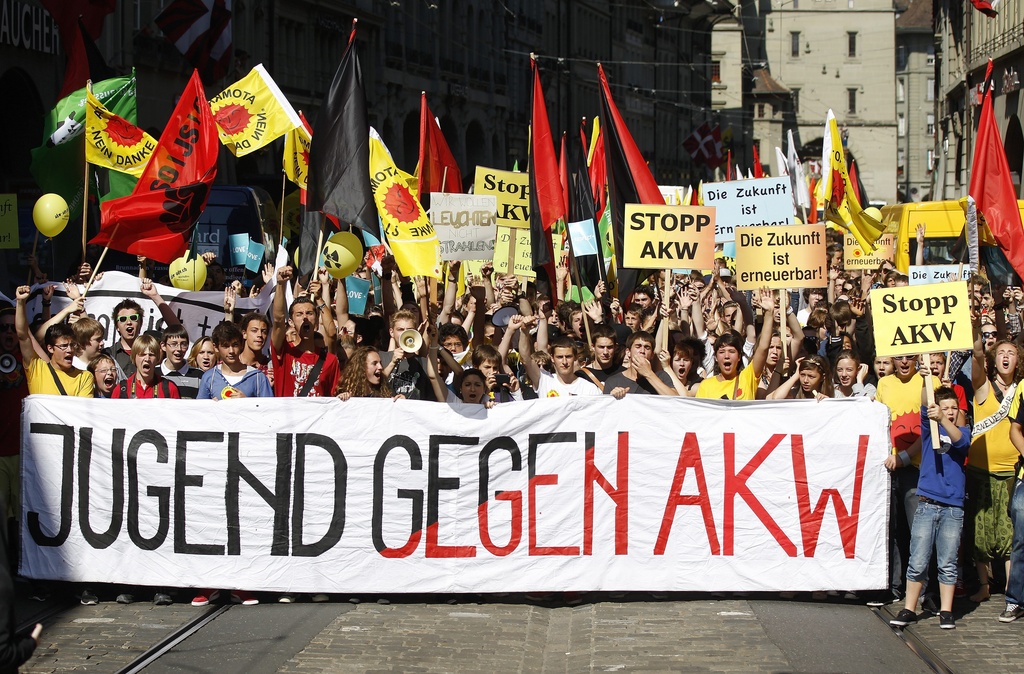
Up to 1,000 pupils in Bern nuclear protest

An estimated 1,000 school pupils took part in an unauthorised demonstration in Bern on Tuesday to protest against the use of nuclear power.
The protest, which passed peacefully, was monitored by the police and caused some disruption to city centre traffic.
The march followed Switzerland’s biggest anti-nuclear protest in 25 years on Sunday, when an estimated 20,000 people marched in two groups to the site of Switzerland’s older nuclear power plant, Beznau, in canton Aargau.
About 40 per cent of Switzerland’s energy needs are supplied by the country’s five nuclear power plants but the industry has been coming under renewed political pressure in the wake of Japan’s Fukushima disaster.
In a related development, the Swiss nuclear industry lobby group Swissnuclear has come under fire for the teaching materials and personnel it sends to hundreds of classrooms every year in cantons Bern and Jura.
The half-day course on the theme of energy has been criticised for failing to provide comprehensive information on the disadvantages of nuclear power while clearly listing the downsides of other sources of energy production.
The Swiss Teachers’ Association described the material as “clearly manipulative”, but added that the teacher had ultimate responsibility for class content.

In compliance with the JTI standards
More: SWI swissinfo.ch certified by the Journalism Trust Initiative


























You can find an overview of ongoing debates with our journalists here . Please join us!
If you want to start a conversation about a topic raised in this article or want to report factual errors, email us at english@swissinfo.ch.